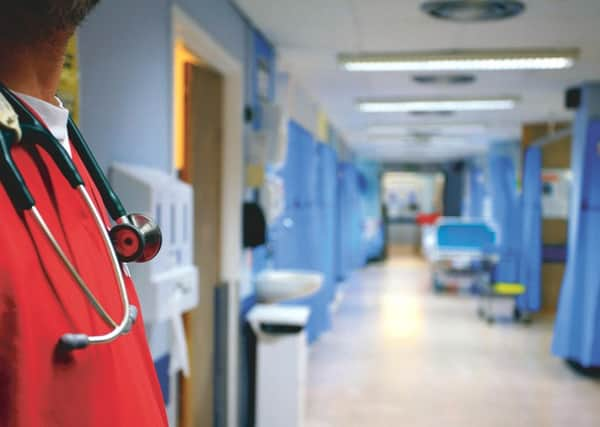Leader: Funding rethink needed to put NHS back on track


In recent years health boards have struggled to meet these official goals, intended as a barometer of how the service is functioning, whether they concern accident and emergency waiting times, bed blocking or waiting for cancer diagnosis and treatment.
Even at primary care level, the frustration with GPs and the lack of access to basic appointments has left many families angry.
Advertisement
Hide AdAdvertisement
Hide AdThe response from opposition parties is predictable: vote for us and we will invest more resource in the health service and it will all be sorted.
But this is a pipe dream.
These failures are not the result of shambolic management or complacency as some MSPs suggest. Whether it is Labour, SNP or Conservative, the government is going to struggle to meet the increased demands placed on the health service. Public finances are tight and simply pouring more and more money into health will not be possible or transformational for patient care.
But government ministers should be criticised. It is their failure to be radical in their thinking that should be called out.
The definition of madness is doing the same thing over and over and expecting there to be a different result. Continuing to fund healthcare in the same way is an example of this.
Our survey found that 53 per cent believe that people who require hospital treatment related to lifestyle issues – such as excessive alcohol use – should be made to pay for their medical care.
The Scottish Government’s figures show there were 36,235 alcohol-related hospital stays in 2016/17, with alcohol costing the health service in Scotland £267 million a year.
And on the issue of payment at point of use, 36 per cent are open to this idea.
So there is evidence that sections of the public already realise that the current model is broken. Individuals need to take more responsibility for their own wellbeing.
Advertisement
Hide AdAdvertisement
Hide AdThis will be controversial and difficult to implement – but we must take steps towards it. And introducing small fees for GP appointments, for example, will help to fund the service at primary care level and open up more appointments for all.
One of the most straightforward changes would be to bring the NHS up to date with new technology. How many hundreds of millions are wasted by missed appointments? By the cost of letters in the post? We need to embrace this to improve efficiency and reduce costs. And in rural areas greater use can be made of remote consultations to avoid unnecessary travel.
It won’t be easy. But unless we commit to change now, we can expect the same results year after year and an increasingly unhappy public.